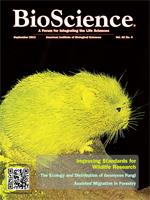As the pace and extent of urbanization increase, an understanding of the mechanisms that shape wildlife communities in cities will be essential to their effective management. Predation could be an important determinant of the structure of these communities, but the research to date suggests a predation paradox: Vertebrate predator numbers increase with urbanization, whereas predation rates decline. We reviewed studies on predator abundance and the survival of terrestrial vertebrates in urban and nonurban contexts to evaluate whether the predation paradox is a widespread phenomenon. We conclude that there is substantial support for it. We discuss hypotheses to explain the paradox and suggest that urbanization has fundamentally altered trophic dynamics by reducing top-down control through multiple mechanisms and by increasing bottom-up forcing through the greater availability of anthropogenic foods. The hypotheses are summarized in a conceptual model that generates testable predictions designed to advance our understanding of trophic dynamics in metropolitan areas.
How to translate text using browser tools
1 September 2012
Urbanization and the Predation Paradox: The Role of Trophic Dynamics in Structuring Vertebrate Communities
Jason D. Fischer,
Sarah H. Cleeton,
Timothy P. Lyons,
James R. Miller
ACCESS THE FULL ARTICLE
It is not available for individual sale.
This article is only available to subscribers.
It is not available for individual sale.
It is not available for individual sale.

BioScience
Vol. 62 • No. 9
September 2012
Vol. 62 • No. 9
September 2012
animal behavior
community ecology
population ecology
urban ecology
vertebrate biology




